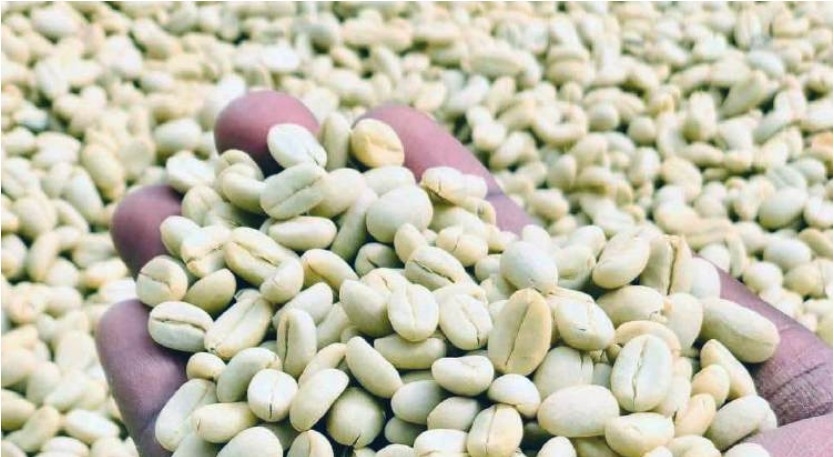Tea farmers should focus more on quality rather than quantity to enjoy the benefits of the sector, the Kenya Tea Development Agency has said.
KTDA chairperson Enos Njeru on Tuesday said there have been complaints about huge volumes of unsold tea, which he said was mainly because of poor tea.
“Farmers who concentrate on quality rather than quantity are enjoying the results of their sales,” Njeru said.
He spoke during an induction meeting of newly elected KTDA directors in Mombasa.
Quality is comprised when farmers fail to adhere to rules given to them, including plucking two leaves and a bud.
“Sometimes the issue of tea hawking affects quality mainly because there are buyers who don’t mind about the quality they buy from farmers,” Njeru said.
This, he said, is because of the economic hardship tea farmers face, which push them to sell any tea as quickly as possible without caring about quality.
“So, if they don’t get something motivating, sometimes they may pluck and sell to any buyer who can give them something that specific day, Njeru said.
To mitigate this, KTDA has improved payment to farmers.
“We increased monthly pay to motivate our farmers to give us quality and we’ve seen this increase production in our KTDA teas. Farmers have moved from private entities, now they are coming to KTDA because of quality,” the KTDA chair said.
He said machinery plucking also compromises quality, calling on farmers to exercise care.
Handling tea leaves during plucking might cause quality compromise especially when a leaf breaks. It releases a lot of chemicals into the air, which in turn affects its cyst when it goes to the market.
This, Njeru said, is a matter that the agency has noted and is looking to sensitise farmers against.
However, he said machine plucking is rare because most KTDA farmers are small scale farmers.
“Machines are mostly used by multi-nationals, who have vast acreage of tea bushes. I would request all KTDA farmers to use hands when picking to get the best quality,” he said.
The tea leaves mostly lose quality between the farm and the factory.
Njeru however said KTDA has received high volumes of tea this year because of favourable weather and availability of fertiliser.
“In January, February and March there was a lot of rain and farmers were applying fertilisers. Three months to closure of the financial year—April, May, June—this is when we received a lot of crop. Compared to last year, there was an increase of between 51 and 52 million tonnes of main tea,” Njeru said.
He said the ban of Direct Sales Overseas also ensured there is increased stock in KTDA.
“Right now we are hitting about Sh40 million in sales. We are hopeful that by end of September, we’ll have moved a lot of tea,” he said.
The chairperson said by the mid-October, when they pay bonuses, they will have enough revenue to pay farmers. This is because they have sold more volumes than last year already.
Tea Board of Kenya CEO Willy Mutai said they will ensure agreed reforms by small tea farm directors will be implemented.
He said the tea sector contributes a significant amount to the exchequer and that is why it is taken seriously.
Mutai said the 71 small scale tea factories contribute up to 56 per cent of the national crop production.
“That means if we are doing Sh180 billion per year, over Sh100 billion is from the small scale farmers,” he said.
Last year, the small scale factories had done 266 million kilos and the endorsement for this year is 319 million kilos.
“That means if you check the contribution value, the GDP is high. Again the money that will go to the pockets of the farmers is high compared to last year,” he said.
The only teething issue, Mutai noted, was in production.
He said there was a surplus globally, which had an endorsement of 392 million.
In Kenya, it is usually an oversupply of 60 million kilos.
“We are doing well. So far we are at 22 per cent in terms of production. Compared to what we did last year, we are up by Sh18 billion. This means we are likely to hit around Sh211 billion in GDP,” Mutai said.
The CEO said farmers should meet the leaf quality standards set, which is two leaves and above or a leaf that can attract a price.
Mutai said there will be a joint trade mission, especially the ones for China market this year, where the excess tea leaves will be sold to.
“We have got the inroads in the China market,” he said.
The Tea Board will also be giving the agency a Sh1 billion support to enhance the capacity with Ketepa Tea.
“This is to make sure whatever they are producing are value added to attract the packed teas market,” he said.
Njeru said induction is meant to help the directors know their roles and how to better discharge their fiduciary duty of care and loyalty to their farmers and the sector.
He said they are determined to keep improving productivity and prices for farmers, who he said also have to play their role of packing the best quality tea.
The chairman called on tea farmers to be united under KTDA to move in one direction as this will go a long way towards setting a minimum standard quality.
He said the margin differences between the best quality tea and the relatively worst should not be more than Sh10.
The agency has had leadership wrangles between 2021 and 2023, with directors fighting over several clauses of the Tea Act.
This, Njeru said, was not a good environment for trade.
However, all litigations in court were withdrawn and elections successfully held.
The newly elected directors now convey optimism to the farmers, Njeru said.
“Now, nothing will block us from implementing sector reforms. I assure that if farmers and stakeholders in the value chain work together, we will deliver and everyone will be happy,” he said.

















